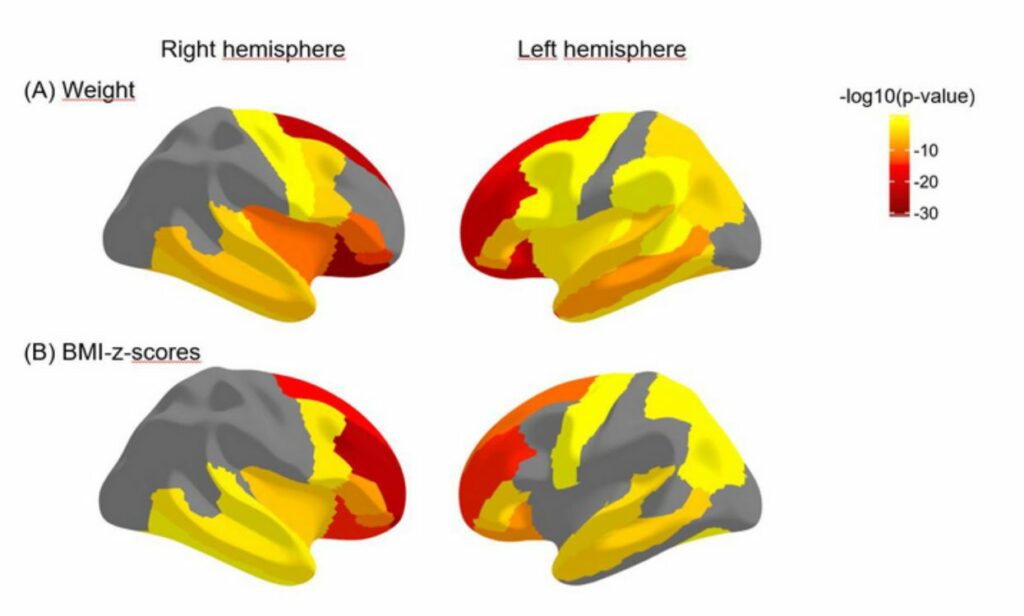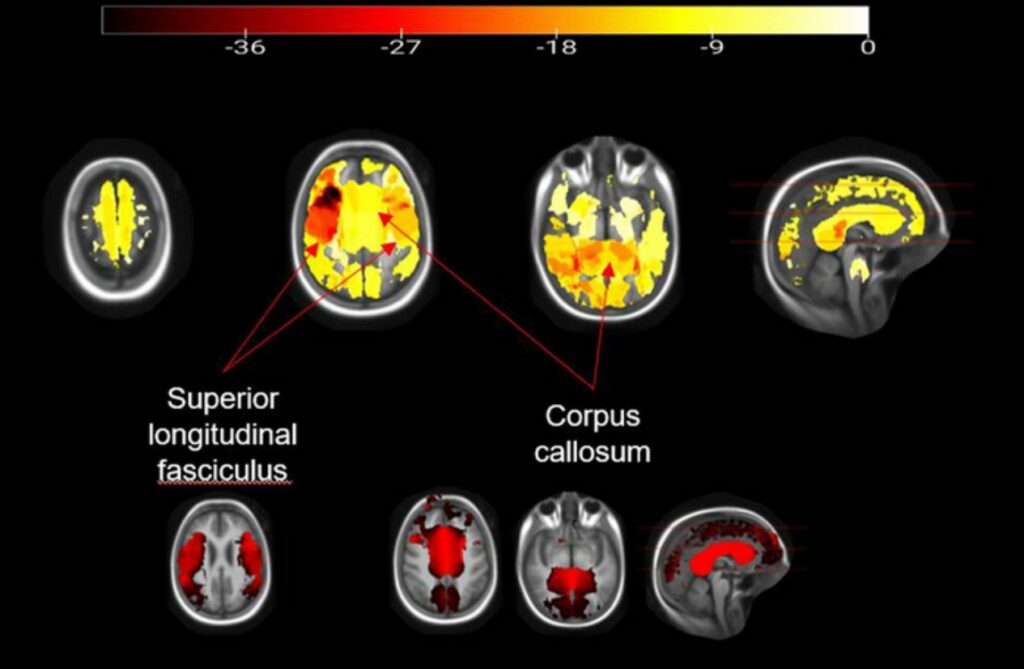New findings presented today show how higher weight and BMI can destroy the brain during childhood and what surprised scientists most was “that these changes were visible early on during childhood”.
In the U.S., childhood obesity is becoming more of a problem. The Centers for Disease Control and Prevention say that about one in five American children is overweight or obese.
We know that adult obesity is related to poor brain health. But most of the studies done on children in the past have focused on small groups of children or just one aspect of brain health.
Using imaging data from the Adolescent Brain Cognitive Development (ABCD) study, which included 11,878 children between the ages of 9 and 10 from 21 centers across the nation, Simone Kaltenhauser, a post-graduate research fellow in radiology and biomedical imaging at Yale School of Medicine in New Haven, Connecticut, led new findings that represented the sociodemographic diversity in the U.S. today at the annual meeting of the Radiological Society of North America (RSNA).
For the first time, we have a dataset that very precisely represents the demographics of the whole country, according to Kaltenhauser.
After taking out kids with eating disorders, neurodevelopmental and mental illnesses, and traumatic brain injuries, the study group was made up of 5,169 kids (51.9% of whom were girls). Based on the BMI z-scores, which take into account a child’s age, gender, and height, 21% and 17.6% of the children in the study group were overweight and obese, respectively.
The team analyzed data from structural MRI and resting-state functional MRI (fMRI), which allows researchers to estimate brain activity by detecting changes in blood flow, to provide a complete picture of brain health within the study group. The connection between neural regions—also referred to as resting-state networks—can be seen while the brain is at rest using resting-state fMRI.
The researchers also looked at data from diffusion tensor imaging, which helps them figure out how white matter is doing, and restriction spectrum imaging, which is an advanced form of diffusion MRI.
The study team utilized linear models to find relationships between weight and BMI z-scores and the imaging measures after adjusting for age, sex, race-ethnicity, handedness, and socioeconomic level.
How higher weight and BMI damage the brain during childhood
Researchers saw changes in the structure of the brains of children with higher weight and BMI z-scores, including a big change in the white matter. The white matter of the corpus callosum, which is the main link between the two hemispheres of the brain, and tracts within the hemispheres that connect the lobes of the brain were both damaged.

“It is striking that these changes were visible early on during childhood,” said the author.
The researchers also saw that the outer layer of the brain, called the cortex, was getting thinner, which has been linked to poor executive function.
“We expected the decrease in cortical thickness among the higher weight and BMI z-score children, as this was found previously in smaller subsamples of the ABCD study,” Kaltenhauser added. “However, we were surprised by the extent of white matter impairment.”

Resting-state fMRI scans showed that higher weight and BMI z-scores were linked to less connectivity in the functional networks of the brain that deal with cognitive control, motivation, and making decisions based on rewards.
“Increased BMI and weight are not only associated with physical health consequences but also with brain health,” Kaltenhauser remarked. “Our study showed that higher weight and BMI z-scores in 9- and 10-year-olds were associated with changes in macrostructures, microstructures and functional connectivity that worsened brain health.”
The study’s senior author, neuroradiologist Sam Payabvash, M.D., assistant professor of radiology and biomedical imaging at Yale School of Medicine, said the results offer an important mechanistic explanation for previous research showing that children with higher BMI have a worse cognitive function and academic performance.
“The longitudinal ABCD study gives us the opportunity to observe any changes that occur in children with higher weight and BMI z-scores,” Dr. Payabvash added. “We’ll need to watch over the next 6 to 10 years.”
Image Credit: Getty
